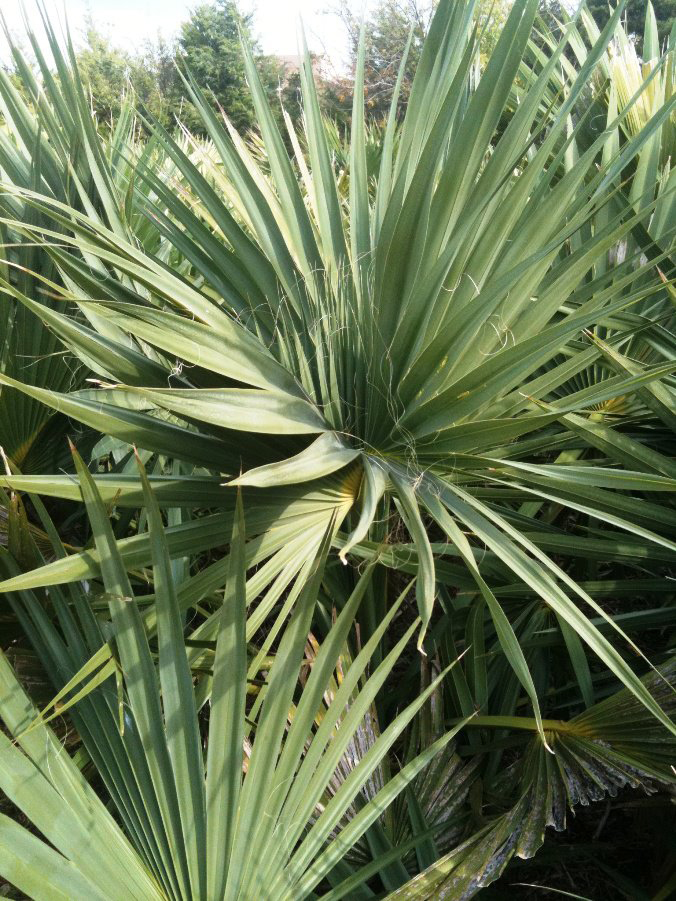Dwarf Palmetto
Dwarf Palmetto, Sabal
If you want to combine the look of a tropical garden with the low-maintenance nature of a Texas native, then dwarf palmetto is the right choice. This tough Texas palm makes an excellent evergreen shrub.

Growing
Dwarf palmetto is found growing naturally in areas of higher moisture in the state, but can adapt to drier conditions and a variety of soils once established. Water regularly until plants are established and provide supplemental water in summer months. Good for planting along streams or in landscaped areas that may stay wet or collect drainage from irrigation. Can be planted in full sun locations, however plants thrive in partial shade conditions as understory shrubs. Plants can also be established in large containers.
Tips
Easily propagated from fresh seeds. Remove spent foliage at the base of the stem.
Recommended
S. minor evergreen low-growing palm native to areas of Texas, Oklahoma, Arkansas and North Carolina. Plants are compact and without a visible main trunk, as it remains underground.
The Texas Palmetto, or S. mexicana, is a larger specimen that can develop a visible trunk above ground after many years. Plants can reach 30’-40’ tall. Texas palmetto and dwarf palmetto are often identified incorrectly as the same plant.
Features
Bluish-green fan-shaped foliage, slow and low-growing. Small white blooms in spring followed by small black edible fruits with a similar flavor to dates.
Height: 5’-6’
Spread: 5’-6’
Hardiness: zones 6b-10


